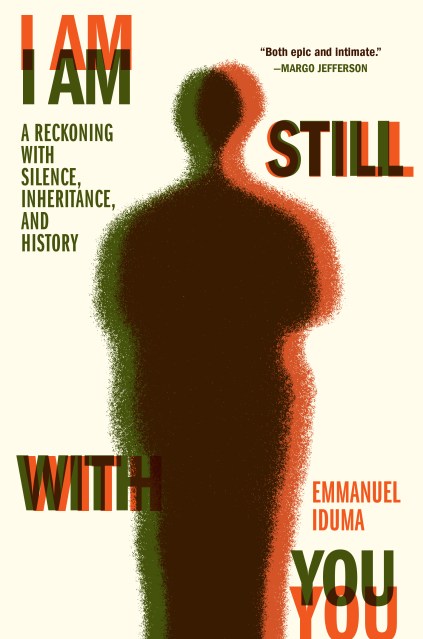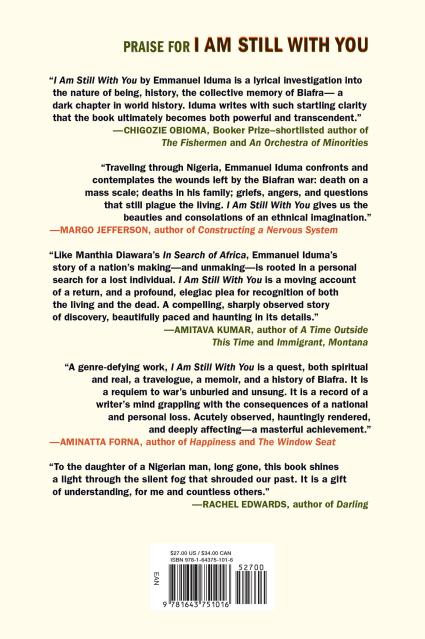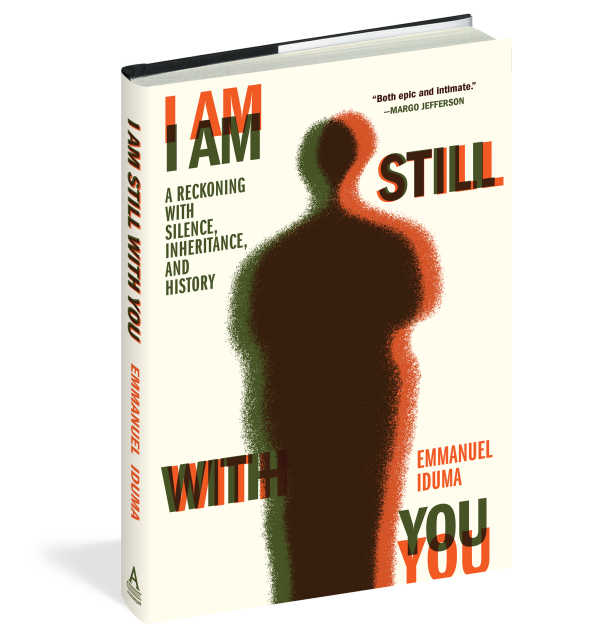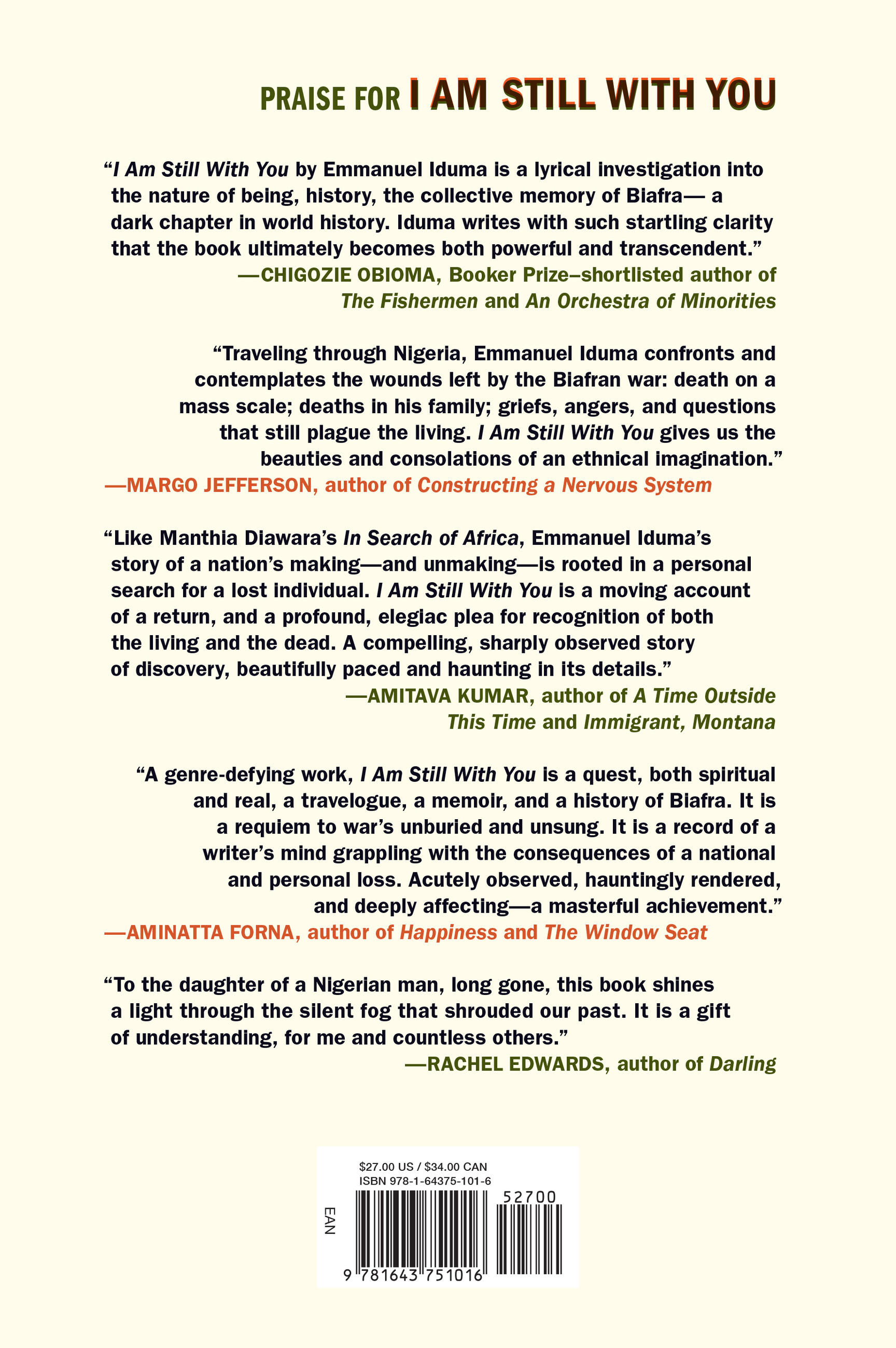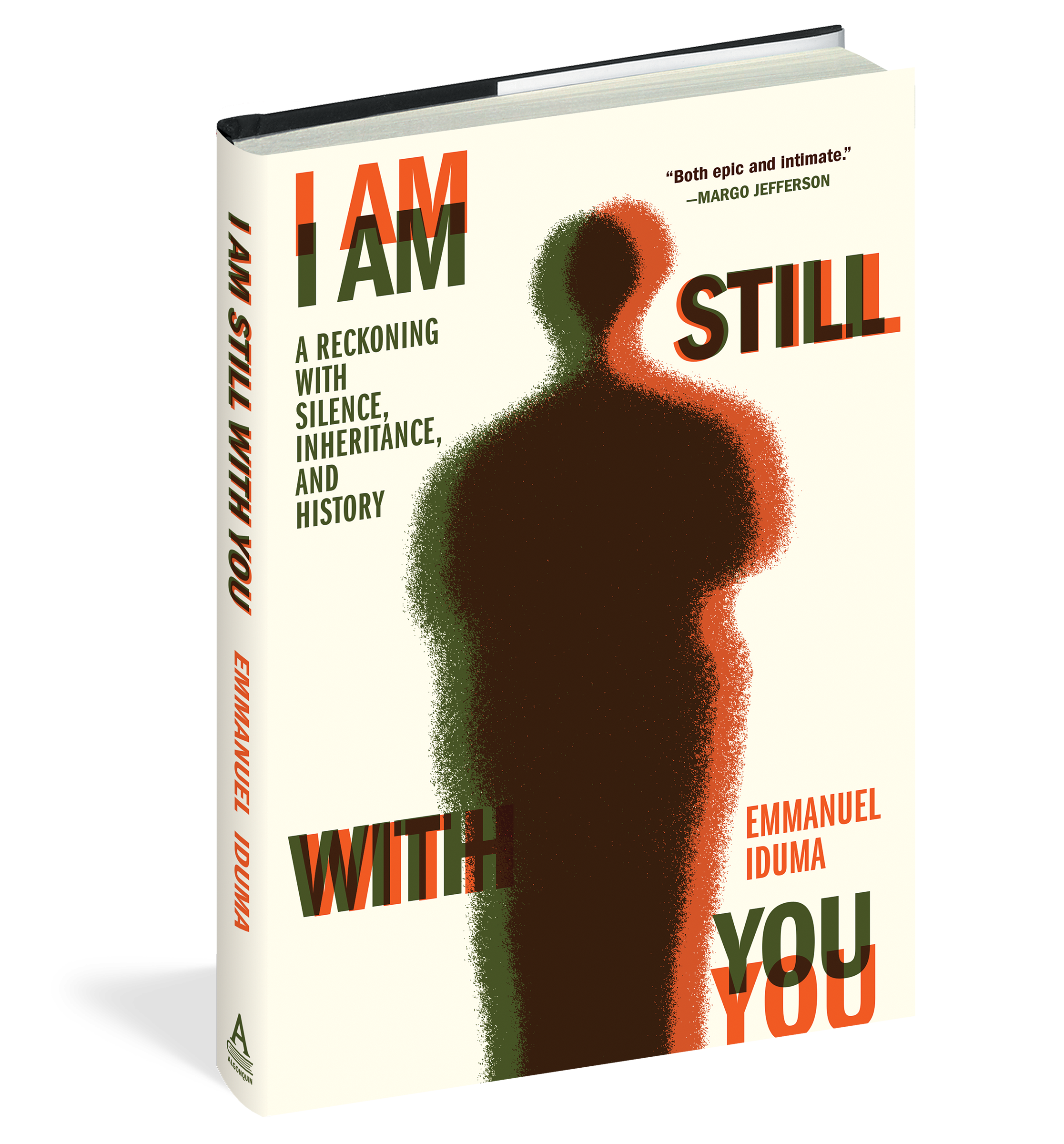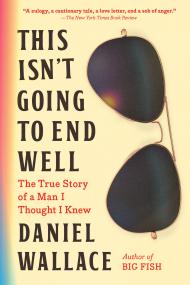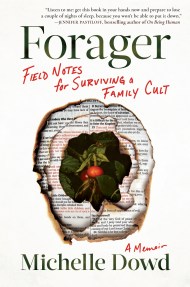By clicking “Accept,” you agree to the use of cookies and similar technologies on your device as set forth in our Cookie Policy and our Privacy Policy. Please note that certain cookies are essential for this website to function properly and do not require user consent to be deployed.
I Am Still With You
A Reckoning with Silence, Inheritance, and History
Contributors
Formats and Prices
- On Sale
- Feb 21, 2023
- Page Count
- 240 pages
- Publisher
- Algonquin Books
- ISBN-13
- 9781643751016
Price
$27.00Price
$34.00 CADFormat
Format:
- Hardcover $27.00 $34.00 CAD
- ebook $13.99 $17.99 CAD
- Audiobook Download (Unabridged) $27.99
This item is a preorder. Your payment method will be charged immediately, and the product is expected to ship on or around February 21, 2023. This date is subject to change due to shipping delays beyond our control.
Buy from Other Retailers:
A FINALIST FOR THE ZORA NEALE HURSTON/RICHARD WRIGHT FOUNDATION LEGACY AWARD ** NAMED A BEST BOOK OF THE YEAR BY THE NEW YORKER AND TIME MAGAZINE
In inimitable, rhythmic prose, the author and winner of the prestigious Windham-Campbell Prize Emmanuel Iduma tells the story of his return to Nigeria, where he grew up, after years of living in New York. He traveled home with an elusive mission: to learn the fate of his uncle Emmanuel, his namesake, who disappeared in the Nigerian Civil War in the late 1960s. A conflict that left so many families broken, the war remains at the margins of the history books, almost taboo to discuss. To find answers, Iduma stopped in city after city throughout the former Biafra region, reconnecting with relatives dear and distant to probe their memories, prowling university libraries to furtively photocopy illicit books, and visiting half-abandoned monuments along the highway. Perhaps, he realized, if he could understand how his father grieved the loss of a brother in the war, he might learn how to grieve his late father in turn.
His is also the story of countless families across the country and across the world who will never have answers or proper funerals for their loved ones. It’s a story about the birth of an artist, about writing itself as an act both healing and political, even dangerous. And it’s a story about family history and legacy, and all the questions the dead leave unanswered. How much of the author’s identity is wrapped up in this inheritance? And what does it mean to return home, when the people who define it are gone?
Equal parts memoir, national history, and political reckoning, I Am Still With You is a profoundly personal story of collective loss and making peace with the unknowable.
-
“Traveling through Nigeria, Emmanuel Iduma confronts and contemplates the wounds left by the Biafran war: death on a mass scale; deaths in his family; griefs, angers and questions that still plague the living. I Am Still With You is both epic and intimate. It gives us the beauties and consolations of an ethnical imagination.”Margo Jefferson, author of Constructing a Nervous System
-
"I Am Still With You by Emmanuel Iduma is a lyrical investigation into the nature of being, history, the collective memory of Biafra—a dark chapter in world history. Iduma writes with such startling clarity that the book ultimately becomes both powerful and transcendent."Chigozie Obioma, Booker Prize-shortlisted author of The Fishermen and An Orchestra of Minorities
-
"[A] moving memoir… a deeply felt eulogy for those who were lost and a sobering reflection on the shame that comes with silence."TIME, "The 100 Must-Read Books of 2023"
-
“Quietly brilliant…Iduma blends travelogue, reportage, criticism, memoir, and history in a hypnotic tale…What emerges is both an argument for narrative that resembles life — narrative that refuses to hew to the conventions of genre for the sake of it — and a subtle critique of the idea of genre itself.”Vulture
-
"This adroitly crafted work seeks closure for 'a generation that has to lift itself from the hushes and gaps of the history of the war.'”The New Yorker, "The Best Books We Read This Week"
-
“As he searches for an uncle, missing since the 1967 Nigerian-Biafra war, Iduma’s conversations and chance encounters begin to fill the gaps memory cannot. He doesn’t know how the ‘fragments of the story fit together,’ but the journey teaches him how to grieve everything he, and Nigeria, have lost.”The Boston Globe
-
“An expansive book…Through a skillful structure and expressive prose, I Am Still With You brings together probing philosophical questions about inheritance, cogent historical and political concerns…inventive, tender, and all its own.”Lucy McKeon, Electric Literature
-
“In I Am Still With You, Iduma meets the lacunae of his uncle’s life head on, in turn confronting other painful absences within his family with a thoughtful introspection, using history, literature, the archive, and vivid encounters from everyday life to make a path across the abyss.”Los Angeles Review of Books / LARB Radio Hour
-
“An often moving account of his consciously unsystematic journey through the former Biafra region, from conversations with close and distant relatives to chance encounters. Increasingly less interested in how and whether ‘the different fragments of the story fit together,' Mr. Iduma learns that he can go home again — and immerse himself in an ‘Igbo melody.’”Pittsburgh Post-Gazette
-
“A bold, poignant tale of speaking into the silence of history.’”Shelf Awareness
-
“I Am Still with You is filled with such echo of loss, of longing, so much that before you are halfway in, the mood envelopes you. It takes skill to deploy this in a way that is not easily seen on-page but is instead felt.”Open Country Mag
-
“A poignant story rescued from…silences and lacunae. A powerful contribution to modern Nigerian history, particularly significant in an age of ethnic conflict around the world.”Kirkus Reviews, *starred review*
-
“Searching war-scarred Biafra for traces of his uncle, a writer grapples with gaps in his family’s history and his own bifurcated identity… [Iduma’s] contemplative, poetic search brings him closer to his wife Ayobami and reminds him that his life remains inseparable from the history of his homeland.”Booklist
-
“An immersive memoir… throughout, Iduma reflects on the power of family to both unite and divide…Iduma’s unravelling of the past is bound to leave readers eager to uncover their own family secrets.”Publishers Weekly
-
“[A] haunting new memoir… Those interested in personal stories about Nigeria will likely enjoy this book.”Library Journal
-
“His contemplative, poetic search brings him closer to his wife Ayobami and reminds him that his life remains inseparable from the history of his homeland.”Kirkus Reviews
-
“In this melange of reportage and memoir, Iduma sets out to learn more about his uncle, and by extension his family.”BuzzFeed
-
“In clear, elegiac prose, Iduma’s search leads to an affecting conclusion.”The New Statesman
-
“A precious and lucid account on an event which is still insufficiently covered in the African media.”The African Book Review
-
“A vital recollection.”OkayAfrica
-
“His narrative captures the poetry of living and dying. Its language, with its ability to transport me through time and across space, beckoned me to travel.”Brittle Paper
-
“A genre-defying work, I Am Still with You is a quest, both spiritual and real, a travelogue, a memoir, and a history of Biafra. It is a requiem to war’s unburied and unsung. It is a record of a writer’s mind grappling with the consequences of a national and personal loss. Acutely observed, hauntingly rendered, and deeply affecting—a masterful achievement.”Aminatta Forna, author of Happiness and The Window Seat
-
“Like Manthia Diawara's In Search of Africa, Emmanuel Iduma's story of a nation's making—and unmaking—is rooted in a personal search for a lost individual. I Am Still With You is a moving account of a return, and a profound, elegiac plea for recognition of both the living and the dead. A compelling, sharply-observed story of discovery, beautifully paced and haunting in its details.”Amitava Kumar, author of A Time Outside This Time and Immigrant, Montana
-
“To the daughter of a Nigerian man, long gone, this book shines a light through the silent fog that shrouded our past. It is a gift of understanding, for me and countless others.”Rachel Edwards, author of Darling
-
“This expansive yet intimate memoir is about the author’s attempt to discover what became of his uncle. It is also an illuminating reckoning with the legacy of Biafra, a nation that continues to exist in the imaginations of many decades after it was defeated.”Amazon Book Review
Newsletter Signup
By clicking ‘Sign Up,’ I acknowledge that I have read and agree to Hachette Book Group’s Privacy Policy and Terms of Use
